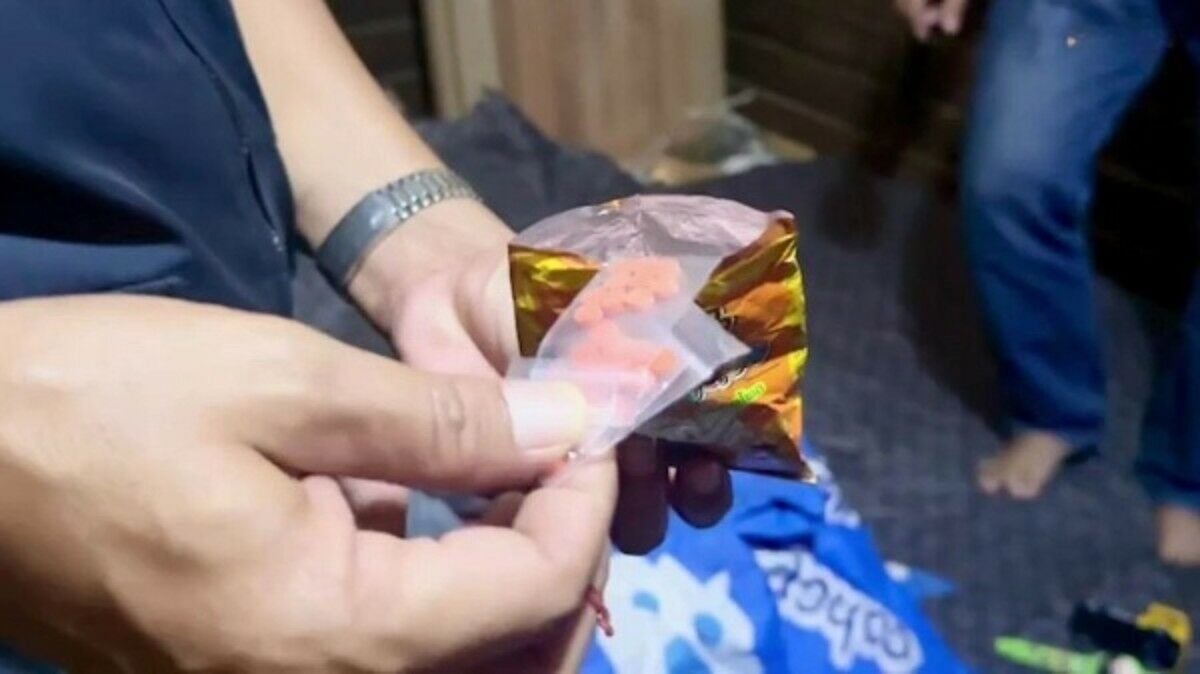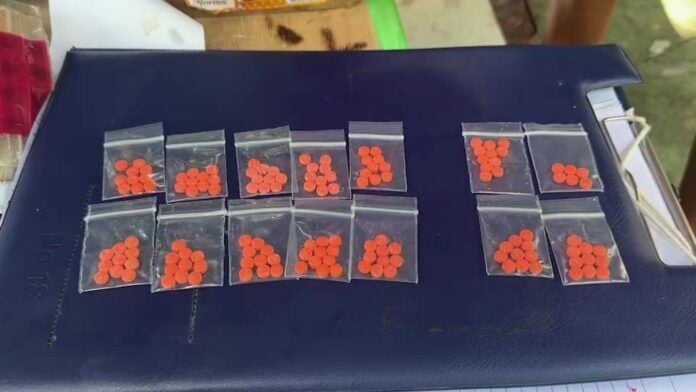Samut Songkhram man arrested with 138 meth pills after rehab

Police in Samut Songkhram apprehended a man for possessing a significant quantity of methamphetamine (meth), commonly known as Yaba.
The suspect, 52 year old Sasikorn, recently underwent rehabilitation but was found with 138 meth pills hidden in his bedroom.
Officials, including Krit Inthanonphan, District Officer of Mueang Samut Songkhram, and Direk Makatham, Village Head of Tha Had, collaborated with local police led by Anake Khachijit, Deputy Superintendent of Mueang Samut Songkhram Police Station.
They conducted a follow-up inspection on Sasikorn yesterday, October 17, after receiving a tip-off about his involvement with drugs. Sasikorn had previously been sent for treatment at Somdet Phra Buddha Loetla Hospital on August 23 following similar allegations.
During questioning, Sasikorn admitted to recent drug use, prompting police to conduct a urine test, which returned a positive result for meth.
Further investigation led to the discovery of 138 meth pills stored in a pink container under a pillow in Sasikorn’s bedroom. Sasikorn confessed that he had purchased 142 pills from an individual named Ek, residing in Samut Sakhon, for 2,200 baht. He claimed that the bulk purchase, averaging 15 baht per pill, was due to the lower price point, denying any intent to distribute.
Officers conducted another urine test to confirm the presence of drugs, which was positive for meth. Sasikorn was then taken to Somdet Phra Buddha Loetla Hospital for further testing, which reaffirmed the presence of category one narcotic substances in his system, reported KhaoSod.
Officials informed Sasikorn of the charges against him.
“You are charged with possession of category one narcotic substances (meth) without permission and illegal use of category one narcotic substances.”
The case has been forwarded for legal proceedings.

Frequently Asked Questions
Here are some common questions asked about this news.
What factors could contribute to the relapse of individuals like Sasikorn after rehabilitation?
Relapse can stem from inadequate support systems, socio-economic pressures, or insufficient rehabilitation programs.
How might the low cost of Yaba influence its prevalence in regions like Samut Songkhram?
Affordable prices make Yaba more accessible, potentially increasing its use and distribution among lower-income populations.
What if stronger enforcement measures were implemented against drug trafficking in Samut Songkhram?
Stronger enforcement could deter drug trafficking, potentially reducing availability and abuse, but might also push the trade underground.
Why is collaboration between local officials and police crucial in combating drug issues in communities?
Collaboration ensures a comprehensive approach, pooling resources and knowledge to effectively address and mitigate drug-related problems.
How could continuous support for individuals in recovery impact drug abuse rates in the long term?
Ongoing support could improve recovery outcomes, decrease relapse rates, and ultimately lower overall drug abuse within the community.
Latest Thailand News
Follow The Thaiger on Google News:


























